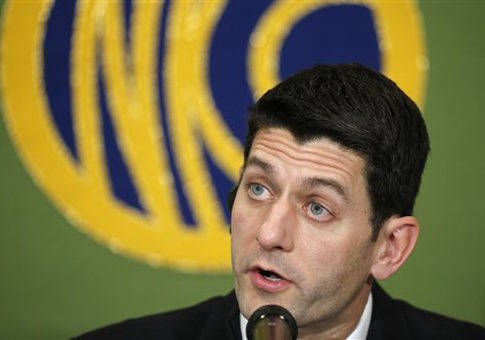Lawmakers advocating for a U.S. trade deal with countries in the Asia Pacific region say the agreement could serve as a vital counterbalance to China’s growing influence in the region.
Leaders on the Senate Finance Committee, along with House Ways and Means Committee Chairman Paul Ryan (R., Wis.), unveiled legislation last week that would grant President Barack Obama "Trade Promotion Authority" (TPA) to finalize pending trade deals. The Obama administration is currently negotiating an agreement known as the Trans-Pacific Partnership (TPP) with 11 other countries and has touted the deal as a key part of its "pivot" to the Asia-Pacific region.
Analysts say the pivot has so far been more talk than action. While the administration has been forced to respond to crises in the Middle East and Eastern Europe, China has moved aggressively to seize disputed territories in the South China Sea and build military airstrips on contested islands.Beijing has also pushed for alternative trade deals in the region that some observers say are designed to contest U.S. influence.
Ryan said in a radio interview on Monday that the TPP, supported by TPA in Congress, "will serve as a counterweight against China." TPA allows lawmakers to have an up-or-down vote on trade deals but without amendments or filibusters in the Senate—a condition viewed as crucial to securing buy-in from other countries. The TPA process is also known as "fast track."
"China is trying to write the rules of the global economy to try and meet China’s demands, not ours," Ryan said. "So it’s really kind of a race for who writes the rules for the global economy: the U.S. and our allies, or China."
He noted that the United States has been excluded from previous trade deals in the region while China has played an active role.
"There have been 48 trade agreements put in place in Asia since the year 2000," he said. "The U.S. has been a party to two of them. As a result, our share of exports over there has gone down 42 percent. So if you aren’t getting these agreements for your country, you’re losing and other countries are getting your market share."
U.S. Defense Secretary Ashton Carter also expressed support earlier this month for the TPP, at one point stating in a speech that, "passing TPP is as important to me as another aircraft carrier."
"We already see countries in the region trying to carve up these markets," he said.
A senior aide for the Ways and Means Committee told the Washington Free Beacon that supporters of TPA and TPP will continue to note the latter’s importance to countering China’s dominance in the region. Countries such as Malaysia and Vietnam are still determining whether to develop more market-oriented economies in line with U.S. allies or statist ones similar to China’s.
"China provides a lot of incentives to steer away from a market-driven economy," the aide said, such as foreign investment and aid.
Both Senate Finance and House Ways and Means are expected to mark-up the TPA bill this week, with possible floor votes in the coming weeks.
The Obama administration has been forced to rely on an unusual alliance with congressional Republicans to try to push through the measure, which is fiercely opposed by many Democrats and their allies in the labor and environmental movements.
Senate Minority Leader Harry Reid (D., Nev.) underscored Obama's inability to secure support from his own party on Tuesday saying he would be a "hell no" in response to whether he supported the TPA legislation.
Some Republicans also oppose any bill that would grant Obama more authority on trade matters after they say he abused his executive powers on immigration policies.
A second senior committee aide said lawmakers in the House will be "looking to move quickly." Passage of TPA could provide a boost to the TPP negotiations as they enter their final stages.
Prime Minister Shinzo Abe of Japan, one of the most prominent countries involved in the TPP talks, told the Wall Street Journal on Monday that, "an agreement between Japan and the U.S. is close" on sensitive issues such as automotive and agricultural trade. "When you climb a mountain, the last step is always the hardest," he added.
